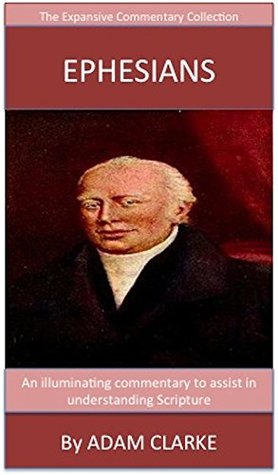- Bible
- Read the Bible
- Bible Versions
- Verse of the Day
- Reading Plans
- Verses by Topic
- Books of the Bible
- Bible Images
- Study
- Commentaries
- Concordances
- Dictionaries
- Encyclopedias
- Sermons
- Bible Atlas & Maps
- BP Wiki
- Devotionals
- Today's Devotionals
- Light of the World
- All Devotionals
- Inspirational Quotes
- More
- Picture Quotes
- Videos
- Inspirational
- Bible Study
- What The Bible Says
- Bible Q&As
- Daily Bread
- Bible by Genre
- Bible Stories
- Random Bible Verse
- Community
- Store
THE EXPANSIVE COMMENTARY COLLECTION is a new release of much loved and oft used commentaries.
Each commentary is beautifully formatted with every verse given an uncluttered presentation for ease of reference and use. We have taken great care to provide you with each individual commentary as it was intended and written by the original author.
Our commentaries are equipped with the very best active tables of contents that drill down from the main contents page to the individual Bible book, to the author, to the Bible book chapter and then to the very verse you are looking to study. These tables of contents have been designed for ease of use and to get you to the exact verse you are looking at.
In this volume we give you Adam Clarke’s commentary on Paul’s Epistle to the Ephesians.
After John Wesley, Adam Clarke is probably the best known Methodist theologian. He lived from 11760 until 28th August 1832.
One of Clarke’s greatest contribution to Christians all over the world is his commentary on the Bible, a work that took 40 years to complete. This commentary was the main resource for Methodists for over two hundred years!
We should also note how Clarke was an early critic of slavery saying that no nation could pretend to worship God while being a proponent of the slave trade.
These volumes are a treasure trove of Scriptural insight and assistance.
Each commentary is beautifully formatted with every verse given an uncluttered presentation for ease of reference and use. We have taken great care to provide you with each individual commentary as it was intended and written by the original author.
Our commentaries are equipped with the very best active tables of contents that drill down from the main contents page to the individual Bible book, to the author, to the Bible book chapter and then to the very verse you are looking to study. These tables of contents have been designed for ease of use and to get you to the exact verse you are looking at.
In this volume we give you Adam Clarke’s commentary on Paul’s Epistle to the Ephesians.
After John Wesley, Adam Clarke is probably the best known Methodist theologian. He lived from 11760 until 28th August 1832.
One of Clarke’s greatest contribution to Christians all over the world is his commentary on the Bible, a work that took 40 years to complete. This commentary was the main resource for Methodists for over two hundred years!
We should also note how Clarke was an early critic of slavery saying that no nation could pretend to worship God while being a proponent of the slave trade.
These volumes are a treasure trove of Scriptural insight and assistance.
BUY NOW
Kindle Edition, 258 pages
Published November 25th 2016
© 2025 Bibleportal.com All rights reserved.

Adam Clarke (1762 - 1832)
Was a British Methodist theologian and Biblical scholar. He is chiefly remembered for writing a commentary on the Bible which took him 40 years to complete and which was a primary Methodist theological resource for two centuries. Contained in 6 volumes, consisting of nearly 1,000 pages each, it was considered the most comprehensive commentary on the Bible ever prepared by one man.As a theologian, Clarke reinforced the teachings of Methodist founder John Wesley. He taught that the Bible provides a complete interpretation of God's nature and will. He considered Scripture itself a miracle of God's grace that "takes away the veil of darkness and ignorance." With such an understanding, Clarke was first and foremost a Biblical theologian, often uneasy with purely systematic approaches to theology.
Clarke is chiefly remembered for writing a commentary on the Bible which took him forty years to complete and which was a primary Methodist theological resource for two centuries.
As a theologian, Clarke reinforced the teachings of Methodist founder John Wesley. He taught that the Bible provides a complete interpretation of God's nature and will. He considered Scripture itself a miracle of God's grace that "takes away the veil of darkness and ignorance." With such an understanding, Clarke was first and foremost a Biblical theologian, often uneasy with purely systematic approaches to theology.
Clarke followed Wesley in opposing a Calvinistic scheme of salvation, preferring instead the Wesleyan-Arminian positions regarding predestination, prevenient grace, the offer of justification from God to all persons, entire sanctification, and assurance of salvation. Perhaps his most controversial position regarded the eternal Sonship of Jesus. Clarke did not believe it Biblically faithful to affirm this doctrine, maintaining that prior to the Incarnation, Jesus was "unoriginated." Otherwise, according to Clarke, he would be subordinate to God and therefore not fully divine. This was important to Clarke because he felt that Jesus' divinity was crucial to understanding the atonement.
Clarke's view was opposed by many Methodists, notably Richard Watson. Watson and his allies argued that Clarke's position jeopardized the integrity of the doctrine of the trinity. Clarke's view was rejected by Methodism in favor of the traditional, orthodox perspective.
... Show more